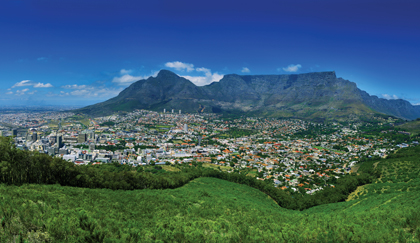Beer has deep roots in South Africa. That’s no surprise, since it was colonized in the 17th century by the Dutch and later by the English. In addition, some tribes such as the Zulu and Xhosa have a history of sorghum and maize-based brewing. The brewing industry there is younger, however, dating to the 1895 founding of Castle Brewery, which catered to the mining industry after gold and diamonds were discovered in the area around Johannesburg. A century of consolidation, aided by anti-apartheid embargoes that led foreign companies to withdraw from the market, and eventually South African Breweries (SAB) controlled 98 percent of the country’s market, selling a number of brands including Castle and Carling Black Label. Internationally, of course, SABMiller is the second-largest brewery in the world.
So there’s a lot of pale lager to be had; Macrobrewing has been no more creative in South Africa than elsewhere in the world. But the end of apartheid 18 years ago opened up the outside world to South Africans once more, and as they traveled, many brought a taste for other styles of beer back home with them.

Some of the leading craft breweries in South Africa are going head to head with South African Breweries by making golden lagers their flagship products.
American craft beer got its start exploring ale styles that the macro companies didn’t offer, but some of the leading craft brands in South Africa are going head to head with SAB by making golden lagers their flagship products.
Going Head to Head
“Our premise was to make a Pre-Prohibition style lager,” says Ross McCulloch, founding partner in Jack Black Beer—an all-malt beer with no additives or preservatives, which is in fact named for a brewer who operated in upstate New York in that period. Their original recipe, developed while McCulloch was living and working in Canada, “was a lot more bitter, but we decreased the IBUs a few points” in response to feedback from South African consumers. They ferment it a bit warmer than is usual for a lager, lending it some more fruit expression in a way akin to a California common, and use three sorts of hops: the local Southern Promise for bittering and Cluster and Saaz hops for flavor and aroma.
McCulloch feels session-style beers with moderate alcohol are an important bridge for educating South African beer drinkers and that stronger, more flavorful styles don’t yet suit South African drinking habits.










A couple of errors in the piece, but it’s great to see the South African beer scene getting some high-profile coverage.